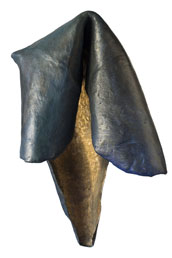Pages: 1 2 3 4 5 6 7 8 9 10 11 12 13 14 15 16 17
American Adulterer
by Jed Mercurio
UK: Vintage, 2010
PP 352. $22
When John Fitzgerald Kennedy, 35th US President, was assassinated in Dallas, Texas, on November 22nd, 1963, it was 3 p.m. in Halifax, NS, when the news reached there. I was 3½, and I remember how gold the late afternoon light seemed in the trees, and also how out-of-joint suddenly the adult world had become. Maybe it was memory of that epoch-shaking event that bade me pick up English author Jed Mercurio’s third novel, American Adulterer. But I’m glad I did, for it’s nearly relentlessly excellent.
Trained as a physician, Mercurio (who also writes as John MacUre) applies well his medical knowledge in this work of faction. His portrait of Kennedy, usually named as the “subject,” or “President,” and, more rarely, “Jack,” shows us a man who projected vigor and youthfulness, but who was, really, a physical wreck, in vivid pain, and already dying prematurely before he was slain, in a sense, mercifully – before a sex scandal could hinder his ready, secular beatification.
If the President’s medical challenges define his courage (amid the Cuban Missile Crisis, he takes “muscle relaxants for his back, … painkillers for his sacroiliacs, and … a combination of pills and emulsions to combat his nausea, dyspepsia, and diarrhea”), his steady philandering underscores his defiance of the limitations of his body and his office, and his flouting of the views of “moral monogamists.”
Mercurio’s thesis echoes that of the “subject,” that “monogamy has seldom been the engine of great men’s lives.” Yet, the author’s diagnosis of the President (and recounting of what the latter terms his “excellent sexual victories”) scruples to note his mistresses’ feeling of exploitation and the concomitant “cold, possessive outrage,” due to his “strategy of insidious humiliation,” that his wife suffers. Yet, when F.B.I. director “Hoover” says, “Mr. President, you, sir, are an immoral man, and you must resign,” the subject reflects, “In the past, it has been said that only a good man can make a good king, yet there would have been precious few good kings if fornication were villainous.” Mercurio agrees. In his notes, after acknowledging Kennedy’s “womanizing,” he asserts that “the extraordinary vision of his presidency,” plus his “eloquence, erudition and wit,” permit J.F.K. to rank, “after Franklin D. Roosevelt, as the most highly regarded President … in modern times, a reputation that grows as successors continue to fall short.” Nevertheless, Mercurio’s re-telling of the oft-told tale of ‘Camelot’ insists that Jack’s White House assembled a harem of unskilled secretaries and tipsy socialites, all of whose assignations got covered up as “national security considerations.” The “subject” also made room for “Marilyn,” time for an East German spy, and space for a Mafia moll.
The prose is crisp, poetic, aphoristic, and cinematic. “When the generals speak longingly of the next battlefield, the President sees those jungles [of Vietnam] only as future slaughterhouses of American youth.” When his “beautiful, beautiful son,” Patrick, dies, “[t]ears run down the President’s cheeks and onto his son’s…, and then he doesn’t want people seeing their President crying any more, so he pulls himself together and goes back up to the fourth floor and shuts the door.” Temporarily circumspect after Marilyn’s suicide, the subject sees “the fins of the presidential motorcade become bats’ wings arched in the color of death.” When the President dies in Dallas, “The final sound he hears is not the crack of the gunfire, or the cheers of the crowd turning to screams, but his wife’s voice, crying his name.”
Mercurio balances properly his hero’s cold-hearted adulteries – hand his cool-headed judgment, searing eloquence, and hot, fierce love for his wife and children. The novelist counts laurels and warts, just as good historians should, but too often don’t. Mercurio goes wrong, I think, when he tries to stretch Jack Kennedy into Bill Clinton or when he tries to contrast Kennedy’s promise not-to-invade Cuba with George Bush’s actual invasion of Iraq. The comparisons are just, but their didactic quality distract from the subject: J.F.K. as man, family man, man’s man, and lady’s man….





No Comments so far ↓
There are no comments yet...Kick things off by filling out the form below.